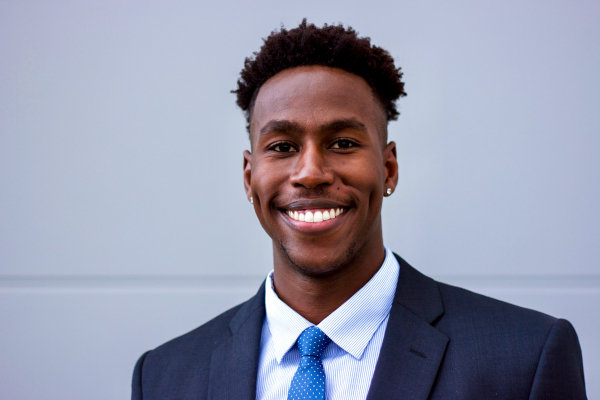
Dr. George Mutwiri Jr.
With a career grounded in lifelong learning, Dr. George Mutwiri Jr. is an alumnus of USask and a founding member of the Black Medical Student Association.
Dr. George Mutwiri Jr. graduated from the College of Medicine in 2021. He completed the final two years of med school during the height of the COVID pandemic and is now a first-year resident physician in Calgary. If the Mutwiri name seems familiar, it’s because George Jr.’s father is George Mutwiri, a senior scientist at VIDO-InterVac and interim executive director of the School of Public Health. While George Sr. began his career in research, George Jr. is pursuing a front-line career in diagnostic radiology.
“Radiology is a unique field with a lot of the factors that initially drew me to medicine,” George says. "Most patients have some sort of imaging, so you’re able to impact the management of many different patients in a given day. You work with doctors from all over the hospital to try and help them diagnose and treat patients.”
The dynamic nature of the field also appeals to George. “Imaging technology is rapidly evolving, as are the medical devices that allow us to perform an ever-increasing number of minimally invasive procedures. I’ll have to be a lifelong learner, which is a welcome challenge,” he says.
One of the lasting memories George takes from his years at USask is his involvement, along with fellow students Joshua Onasanya and Nafisha Absher, in establishing a chapter of the Black Medical Student Association (BMSA). The BMSA is a collaborative network of Black medical students across whose mission is to secure equitable representation of Black students in Canadian medical schools and to advocate for more inclusive medical training that equips all learners to better serve the healthcare needs of underserved Black communities across Canada.
“We advocated for issues in the college that we thought would help the BIPOC population in Saskatchewan, such as teaching about how skin diseases appear on darker skin tones in dermatology lectures or having more diverse standardized patients that reflected the population so med students were more prepared to interact with people from different cultures and backgrounds when they began working,” George says.
While George is focused on completing his residency, he is also committed to staying engaged in the community and the college, with the hopes of someday teaching and mentoring future generations.

